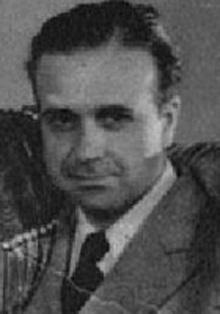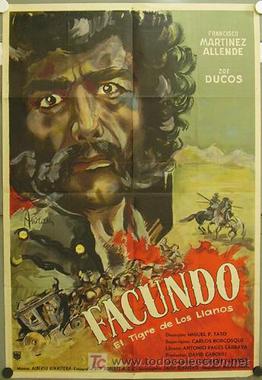Related Research Articles
Alfredo Le Pera was a Brazilian-born Argentine journalist, dramatist, and lyricist, best known for his brief but fruitful collaboration with the renowned tango singer Carlos Gardel. He died in a plane accident with Gardel when he was at the height of his career.

María del Carmen García Maura is a Spanish actress. In a career that has spanned six decades, she has starred in films such as Women on the Verge of a Nervous Breakdown, ¡Ay Carmela!, Common Wealth, and Volver. With three wins, she holds the record for most Goya Awards for Best Actress. She also won a Cesar Award in 2013 and a Cannes Film Festival Award in 2006.

Soda Stereo was an Argentine rock band formed in Buenos Aires in 1982. The band's membership consisted of singer-guitarist Gustavo Cerati, bassist Zeta Bosio and drummer Charly Alberti. During their career, the band released seven studio albums before disbanding in 1997. Soda Stereo is the best-selling Argentine band of all time, having sold seven million records by 2007.

Carlos Francisco Borcosque Sánchez was a Chilean film director and screenwriter notable for his work during the Golden Age of Argentine cinema.

Roberto Escalada born Aldo Roberto Leggero was an Argentine actor, an icon of the classic era of Argentine cinema.

Carlos Cores was an Argentine film actor, and film director.

Ada Cornaro was a prominent Argentine film and theatre actress, tango dancer and singer of the 1930s and 1940s.
The House of the Crows is a 1941 Argentine film directed by Carlos F. Borcosque during the Golden Age of Argentine cinema.

La Verdadera victoria is a 1944 Argentine romantic comedy film of the classical era of Argentine cinema, directed by Carlos F. Borcosque and starring Pedro López Lagar. Music by Franz Schubert was used in the film together with compositions by Alejandro Gutiérrez del Barrio.

Facundo, el tigre de los llanos is a 1952 Argentine biographical film of the classical era of Argentine cinema, based on the life of La Rioja province's strongman Facundo Quiroga. The movie was directed by Miguel P. Tato and Carlos F. Borcosque.

Voy a hablar de la esperanza is a 1966 Argentine film directed by Carlos F. Borcosque and starring Alfredo Alcón, Inda Ledesma and Raúl Rossi.
Crucero de placer is an Argentine film shot in Eastmancolor, directed by Carlos Borcosque Jr. based on the screenplay by Daniel Delbene. It was released on March 20, 1980, and stars Claudio García Satur, Juan Carlos Altavista, Ana María Cores, and Pedro Quartucci. It was partially filmed in the Paraná River Delta.
Carlos Borcosque Jr. was an Argentine film director, screenplay writer and producer.
24 Hours in the Life of a Woman is a 1944 Argentine drama film of the classical era of Argentine cinema, directed by Carlos F. Borcosque and starring Amelia Bence and Roberto Escalada. It is based on the 1927 novel Twenty-Four Hours in the Life of a Woman by the Austrian author Stefan Zweig. Mario Fezia won the Silver Condor Award for Best Sound for the film.
Carlos Enrique Prono is a former Argentine footballer who played in clubs of Argentina, Chile, Colombia and Honduras.
Oscar Valicelli was an Argentine film actor.
Vida y milagros de Don Fausto is a 1924 Chilean animated silent comedy film, the third film of Carlos F. Borcosque which he shot with director Carlos Espejo. It was based on the Bringing Up Father comic strip.

George Andreani, pseudonym Josef Dvořáček (born as Josef Kumok; 28 February 1901 in Warsaw, Poland – 2 April 1979 in Buenos Aires, Argentina) was a Polish composer, film score composer, pianist, conductor, and actor. He was noted for his scores of some 75 Argentine films during the Golden Age of Argentine cinema from 1937 to 1959. Aside from his prolific work as a score composer, he was also conductor of the Orquesta Sinfónica Schenley in the 1940s.

Sabina Olmos (1913–1999) pseudonym of Rosa Herminia Gómez Ramos was an Argentine film actress of the Golden Age of Argentine cinema.
References
- ↑ Aguilar, Gonzalo Moisés; Manetti, Ricardo (2005). Cine argentino: modernidad y vanguardias, 1957/1983 (in Spanish). Fondo Nacional de las Artes. p. 765. ISBN 9789509807891.